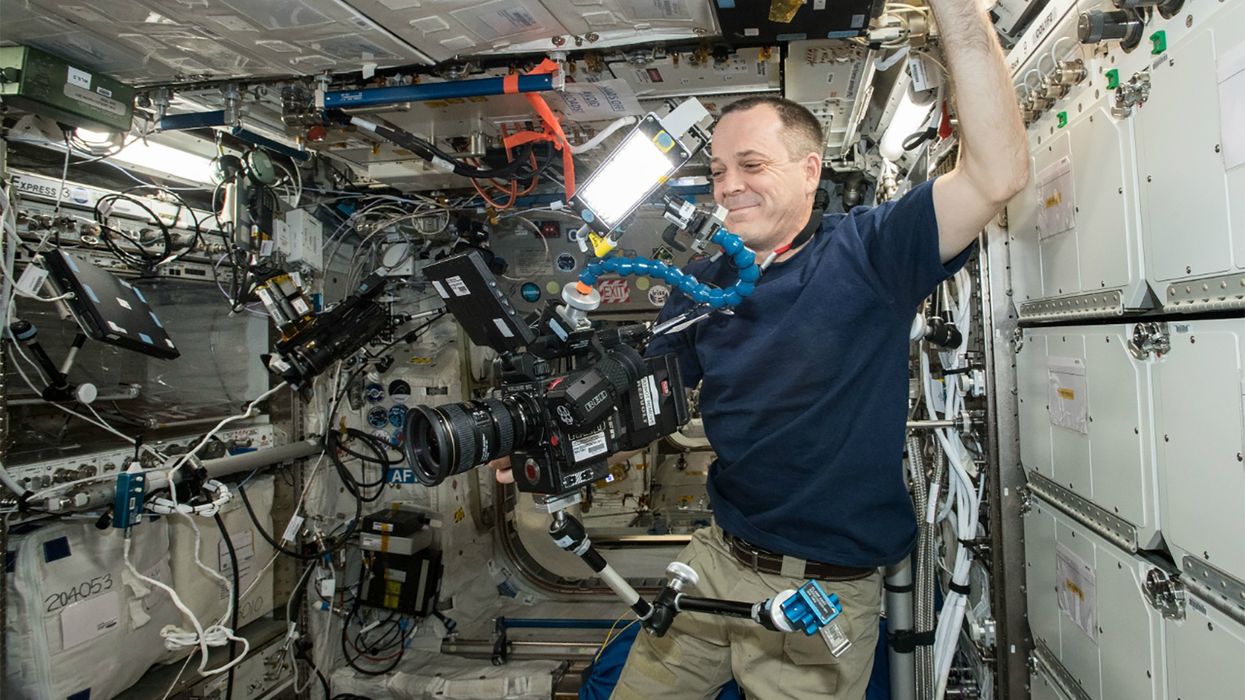What Does the Hollyland Pyro 7" Do?

Filling in as a Steadicam monitor wirelessly
Hollyland
The Pyro 7", like it's little buddy the Mars 5" M1, does a lot.
It's primary function is as a receiver/monitor—an all-in-one little unit you get the benefits of receiving the wireless video to view it, in a tiny neat package. Versatile in many ways, it has mounting points to put it on a stand or a directors cage. Not to mention it is battery powered with video in and out, so you can use it in bigger setups.
The most impressive part of the Pyro setup is that it isn't just a transmitter or a receiver, it's both. If you want it on the camera as your monitor for the operator, it can also work as a transmitter to up to four different Pyro receivers. Or, if you have a Pyro transmitter on your camera, the Pyro can work as both a transmitter as a receiver, all in one.
And it has basically every single monitoring feature you could want, including false color, focus peaking, LUTs, and more.
Pyro 7" Recording Features

Hollyland
On top of everything else, this unit also records straight to file. It does this to either an internal hard drive, or to an external SSD drive.
The smaller Mars M1 doesn't have a slot for SD or CFexpress cards, but that's frankly fine. Even on cameras these days where you have those slots, or external monitor/records that have them, we tend to shoot everything straight to Samsung T9 drives anyway, and we like that they seem to get it and just skip the internal slots.
Why spend money on a feature many likely don't use? But the larger Pyro does have room for an SD card slot for up to 40 minutes of recording to SD, and we always can appreciate a slick additional feature.
Pyro 7" Power Functionality

Hollyland
One of the best features of the Mars model is power.
The Mars 5" is a small unit, so you've only got one mounting spot for a Sony style NP battery instead of the two you'll see on some competitors. But frankly a lot of the time even on units that take two, we just mount a single battery, and it's nice to have the battery in the middle for balance. With the Pyro 7" you get the option for two, which is great.
But the more interesting aspect is that there is both an output and an input for power over a DC barrel connector on the Mars M1. And it's a full sized robust 5.5mm unit. This didn't seem that vital at first glance but turned out to be one of our favorite features.
When rigging two of these units together to a directors monitor kit, you can now power both off of one battery. Or you can run power to a dummy battery to power a follow focus controller, if you've mounted your Mars to the top of the controller so your AC can see what's going on.
This means you are only worried about a single batteries life cycle, and that makes life much easier. Only one type of spare to keep in your pocket, only a single charger to keep going. Among all the other features, don't sleep on the power ports as being a key benefit here. Competitors sometimes have power ports (but not often), and if they do it's often a weird cable size, or just having input or output. Here you've got a robust solution that fits into a variety of workflows.
With the larger Pyro 7" you lose that output power, but that feels fair; you aren't likely to put a bunch of 7" monitors together in a multi-camera cage, or put the 7" at the top of your follow focus hand unit, so the power output was less likely to be needed there.
Pyro 7" Drawbacks

Hollyland
The primary worry all of us have with compact units like this is heat.
While mostly using it in air conditioned locations (and not using the recording feature frequently), it was just fine. It would feel warm to the touch, but not "hot." When used outside in the baking sun, it did get "very warm," and that was a worry. We didn't have any issues with functionality, but it's always good to remember temperature when you plan out your days.
A courtesy flag to keep the sun off the operator, and thus the camera, will go a long way towards keeping this unit cool. Or even setting up a flag on the camera itself to keep the sun off it is also recommend.


















